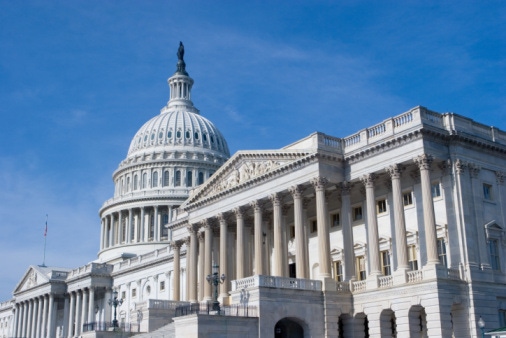NCBA lays out legislative priorities
Association president urges lawmakers to address nine key issues.

While acknowledging the price environment for cattle has drastically improved over the last two years, National Cattlemen’s Beef Association President Todd Wilkinson says the recovery has been bittersweet. According to him, the current 89.27 million head of cattle in the U.S. is the lowest inventory in 61 years. During remarks before the House Agriculture Subcommittee on Livestock, Dairy, and Poultry last week, he laid out NCBA’s priorities for the current Congressional Session.
“Make no mistake: Even amid a recovering market, cattle producers still face a myriad of challenges,” Wilkinson said during his testimony.
According to him, cattle producers are experiencing substantially reduced access to forages, which has been exacerbated by drought in the Midwest as well as record precipitation in the Great Basin. Tight land and hay supplies have also increased forage costs and lease rates. He sees better access to risk management tools and disaster indemnity programs as crucial to ensuring the strength of the livestock sector.
Rising interest rates, surging input costs and “burdensome” regulations are other factors he says are hurting cattle producers. That being said, Wilkinson remains optimistic about the state of the cattle industry. However, he urged lawmakers to address several pressing issues.
Nine key priorities
NCBA’s priorities start with passing a farm bill that includes provisions to protect animal health, promote voluntary conservation programs, reinforce disaster programs and support risk management initiatives. Wilkson added that NCBA supports nullifying USDA’s Packers & Stockyards rule and reducing regulatory burdens.
“Whether it is uncertainty resulting from arduous livestock transportation requirements, compliance costs associated with the Biden Administration’s Waters of the United States Rule, or land management restrictions resulting from unscientific influences in implementation of the National Environmental Policy Act and Endangered Species Act, cattle producers end up being saddled with the bill more often than not,” Wilkinson said. “Further compounding this problem is the unserious manner in which federal agencies calculate stakeholder compliance costs in their rulemaking analyses, often grossly underestimating financial burdens.”
Wilkinson said NCBA favors reauthorizing the Animal Drug User Fee Act and livestock mandatory reporting. He called on legislators to expand beef processing capacity through legislation like the DIRECT Act. He also said Congress should defend the beef checkoff and support new trade opportunities by reauthorizing Trade Promotion Authority and seeking a trade agreement with the U.K.
According to Wilkinson, Congress should also recognize that, by strengthening and upcycling inedible land into beef, cattle producers should be considered the country’s “original conservationists”
“Working together, we can ensure the long-term success and viability of those on the front lines providing said crucial food security,” Wilkinson said. “We owe it to the next generation to get it right.”
About the Author(s)
You May Also Like




.png?width=300&auto=webp&quality=80&disable=upscale)
